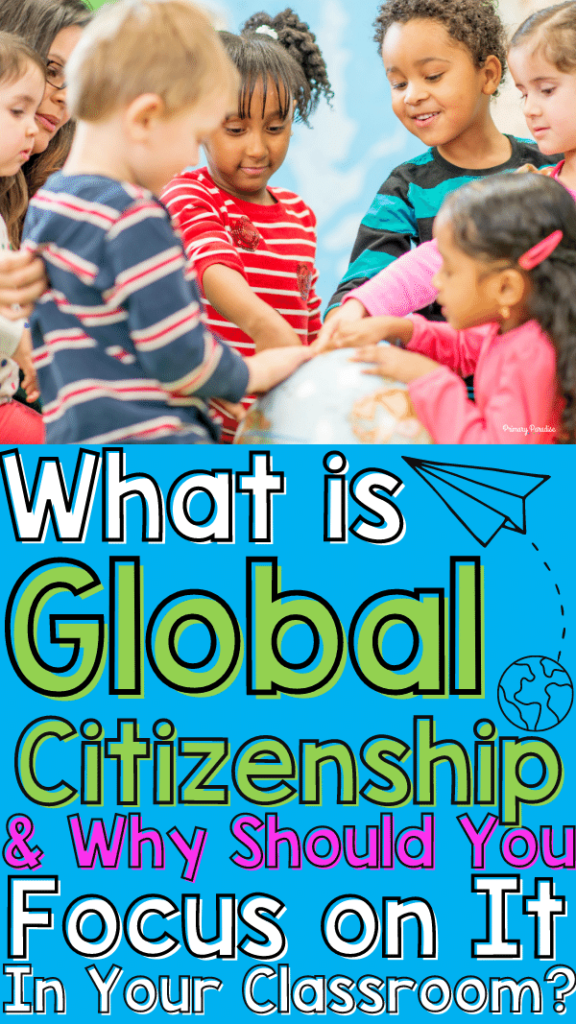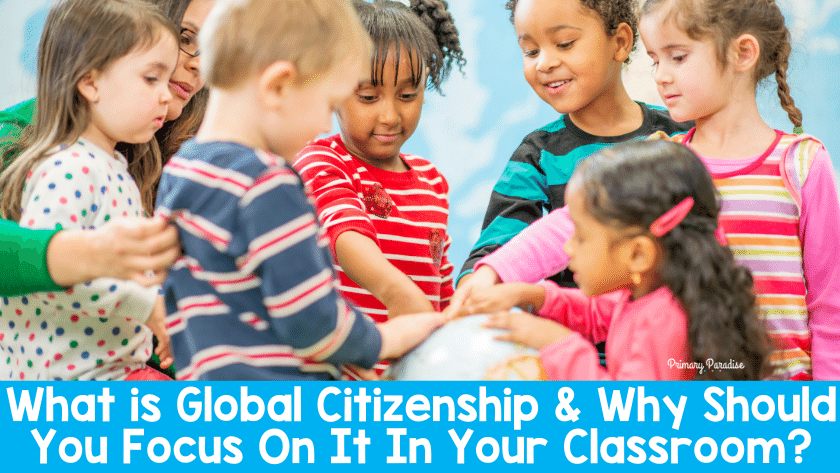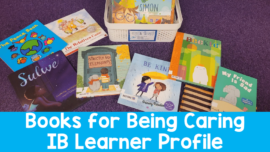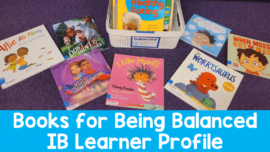Global citizenship is important in today’s very global world. The concept of global citizenship is at the center of International Baccalaureate, or IB, education. Even if you’re not an IB teacher, teaching your students to be global citizens is important. So, what exactly is global citizenship? And, why should you focus on global citizenship skills in your classroom?
What is Global Citizenship?
So, what is global citizenship? Global citizenship is recognizing that the world is very connected and interdependent and then using that knowledge to help our students function, flourish, and contribute to our world. It’s a shift in perspective, understanding, and choices.
Here is the IB’s mission statement. The International Baccalaureate aims to develop inquiring, knowledgeable and caring young people who help to create a better and more peaceful world through intercultural understanding and respect.
Global citizenship, when you boil it down, is creating awareness and understanding in our students, and ourselves, that leads to action.
Why is Global Citizenship so Important?
We live in a very global world that is only going to become more and more interconnected. The Covid-19 pandemic has taught us that what happens in one part of the world can have a deep and lasting impact on what happens in the rest of the world. The environmental crisis is another example of how connected and entwined the world is.
On a less catastrophic sounding level, our students are likely already connecting with people across the globe through the internet. The expansiveness and easy access of the internet means children in the UK can watch videos made by, play games with, and have conversations with other children in Japan or Sweden or Jamaica.
Even if you’re not teaching in an IB school, it’s still very important that we help students understand the connectedness of the world because it’s only going to become more connected.
Teaching our students how to become globally minded helps our students view life through others’ lenses and opens their minds to understanding how and why people make different choices. Ultimately, it’s a way to create respect and understanding. And, ultimately it’s a way to help create a better world.
Okay, so what now?
This has been a lot more big picture/philosophical than my typical posts. However, I promise we’ll get to the practical part of things. In the next series of blog posts, I’ll share some simple and practical ways that you can teach your students global citizenship in your classroom. I’m an IB teacher in an IB school. Even if you’re not, these activities are solid, standards based activities. They will both teach students other important skills while they’re learning to understand and connect with the everchanging, global world. Because in the end, our job as teachers is to prepare our students for the world they’ll be living in once they’re adults.




